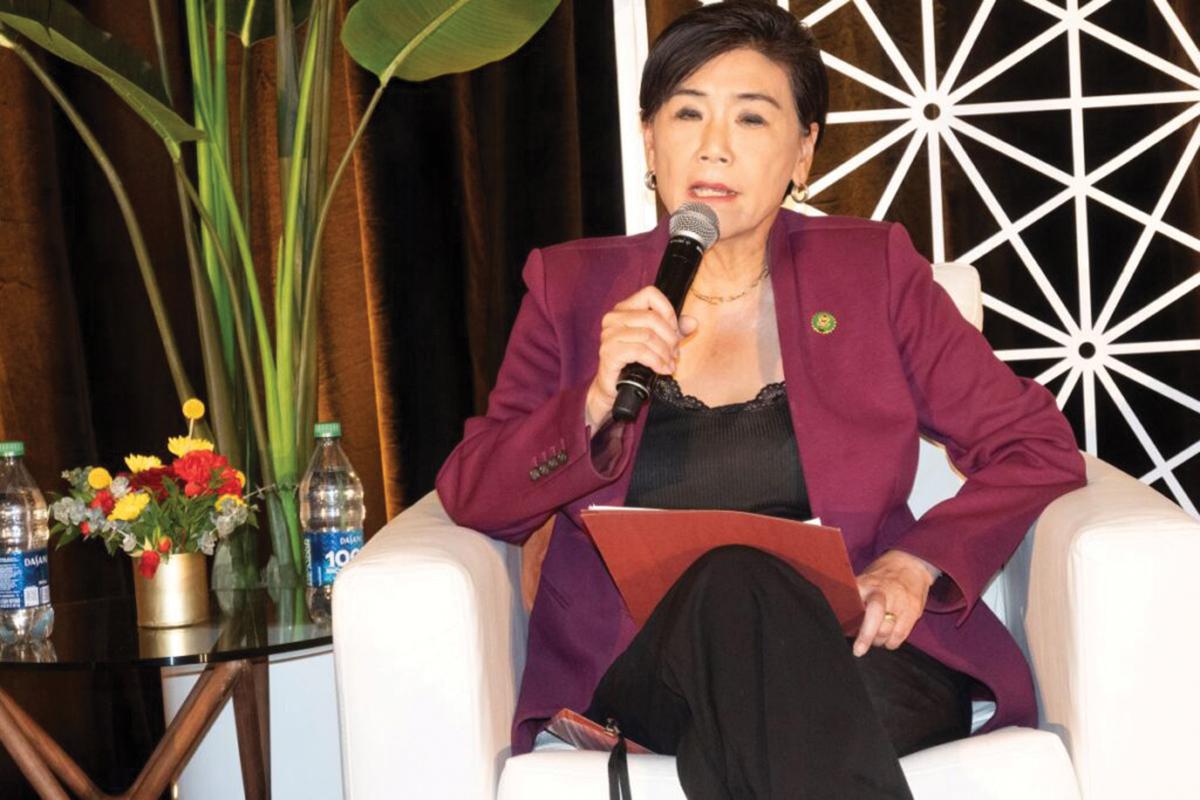
SACRAMENTO — The state’s $247 million API Equity Budget, set to expire next year, may not be renewed as California faces an unprecedented $22 billion budget deficit, said California Asian and Pacific Islander Legislative Caucus Chair Assemblyman Evan Low Sept. 8, on the sidelines of the first AAPI Leadership Summit.

“I need our community to understand hard facts and truth. In reality, we are in the midst of an economic collapse. There were years of extraordinary revenue when the API Equity Budget was created in 2021.”
“But we’re coming out of the COVID pandemic, and we haven’t recovered yet. We don’t have the resources we previously had,” Low told this reporter, noting that he expects no additional funding for the API Equity Budget next year.
The Democrat, who represents portions of California’s Silicon Valley, encouraged a more holistic approach to combating hate violence. “We need to tackle the underlying factors — poverty, affordable housing, a lack of good-paying jobs — factors that make people resort to hate,” he said.
In an historic move in 2021, California created the three-year API Equity Fund, allocating $166.5 million to combat the rise of hate crimes against the Asian American and Pacific Islander Community. An additional $40.5 million was allotted last year, and California Governor Gavin Newsom added another $40 million in June. The 2023-2024 allocation for the API Equity Budget was initially set at $10 million. But state legislators and community leaders successfully lobbied for additional funding.
While the community has always faced xenophobia, the rise in hate incidents and attacks has grown to more than 11,500 over the past three years, according to data reported by the web portal StopAAPIHate. Nearly 40 percent of the incidents occurred in California, overwhelmingly targeting women and girls, often on or near public transportation.
Community activists believe the rise in attacks was fueled by former President Donald Trump blaming China for causing the COVID-19 pandemic, and also the U.S.’s increasingly fraught relationship with China.
Anti Asian hate crimes were not a focus of the two-day summit, the largest-ever gathering in California of AAPI Leadership, which was organized by the California Asian and Pacific Islander Legislative Caucus. But several speakers addressed the issue during their formal remarks, and on the sidelines of the meet, in interviews with this reporter.
Senate Vice Chair Dave Min, D-Irvine, is the sponsor of SB 434, legislation that would require the 10 largest public transit agencies in California to collect data on street harassment experienced by transit riders, with a focus on riders from underrepresented communities and those lacking sufficient English proficiency. The measure was passed by the Senate; the Assembly Sept. 8 voted on a third reading of the bill.
The API Equity Fund has allocated funding to the Mineta Transportation Institute at San Jose State University to create a survey by December 2023 that can be used by public transit agencies to collect and report harassment data.
In an interview, Min said he would like to see a “modest amount” of the additional funding allocated to public transit agencies to report and collect data for the Mineta survey. “It is important that we understand how often harassment takes place and where, he said, noting that the cost to administer the survey is “not that high.”
Reps. Ted Lieu and Ro Khanna, both Democrats from California, kicked off the second day of the summit Sept. 8 morning, tackling the issue of anti-Asian hate violence head on.
“The greatest challenge the AAPI community faces is the shocking rise in hate crimes, particularly attacking our grandparents, our children. But the community has fought back,” said Lieu, referencing the COVID-19 Hate Crimes Act, which President Joe Biden signed into law on May 20, 2021.
“We are living in two different factual universes, in which one is based on ‘alternative facts,’” he said. “There is more outward expression of hate against minority communities.”
He noted that — even in the progressive state of California — there was a bill prohibiting foreign ownership of land. Texas and Florida, among other states, have floated bills prohibiting Chinese citizens from purchasing land in their states. Florida’s law went into effect July 1, prohibiting Chinese citizens from buying homes or land in the state.
Last year, Sen. Melissa Hurtado, a Democrat from Bakersfield, introduced SB 1084, a bill prohibiting foreign governments from owning land in California. The bill passed the Senate on a 31-0 vote, and a 75-0 vote in the Assembly. Newsom vetoed the bill last September.
In response to a question, Khanna said: “(former president Donald) Trump is continuing his blaming and shaming, and may continue talking about banning all imports from China. The responsibility is on us to speak up. People must understand that our relationship with Asia defines the 21st century.”

Rep. Judy Chu, a Democrat from California who also chairs the Congressional Asian Pacific American Caucus, told this reporter: “Trump will not stop himself. He’s got three years of anti-Asian hate violence squarely on his back.”
“The community must be prepared for anti-Asian assaults in 2024,” said Chu. (Sunita Sohrabji/Ethnic Media Services)





